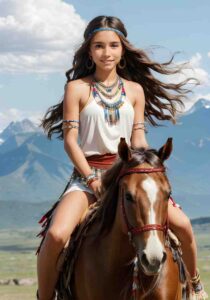Unraveling the Mystique: Exploring the Culture and Traditions of the Dogon People
Introduction:
Nestled within the rugged landscape of Mali, West Africa, lies a community shrouded in mystery and tradition – the Dogon people. For centuries, the Dogon have captivated anthropologists, historians, and travelers with their rich cultural tapestry and enigmatic beliefs. From their striking architecture to their profound cosmology, the Dogon offer a glimpse into a world where tradition intertwines seamlessly with everyday life. In this exploration, we embark on a journey to unravel the intricate layers of Dogon culture and traditions, shedding light on their customs, rituals, and worldview.
Origins and History:
The history of the Dogon people is veiled in obscurity, with oral traditions passed down through generations offering glimpses into their distant past. Believed to have migrated to their current homeland in the Bandiagara Escarpment region around the 15th century, the Dogon have since established a unique society characterized by its resilience and cultural richness. While the exact origins of the Dogon remain a subject of debate among scholars, their presence in the arid plains and cliffs of Mali has left an indelible mark on the landscape.
Architecture and Settlements:
One of the most striking features of Dogon culture is their architecture, which reflects both practicality and spiritual significance. Dogon villages are often perched atop the cliffs of the Bandiagara Escarpment, providing natural defenses against intruders and offering stunning panoramic views of the surrounding plains. Houses are constructed from mud bricks and topped with conical thatched roofs, blending seamlessly with the rocky terrain.
Central to Dogon architecture is the granary, a cylindrical structure used for storing grains and other essential commodities. These granaries, adorned with intricate carvings and symbols, serve not only as storage facilities but also as symbols of wealth and prestige within the community. Each village also boasts a sacred meeting place known as the toguna, a low-roofed structure where elders gather to discuss matters of governance and tradition.
Cosmology and Spiritual Beliefs:
At the heart of Dogon culture lies a complex cosmology that shapes every aspect of daily life. Central to their belief system is the concept of Amma, the supreme creator deity responsible for bringing order to the universe. According to Dogon mythology, Amma created the world through a process of divine shaping, imbuing each element with its unique essence and purpose.
Key to understanding Dogon cosmology is the notion of Nommo, ancestral spirits believed to have descended from the stars to impart wisdom and guidance to humanity. The Dogon revere the celestial bodies as embodiments of these ancestral spirits, with Sirius, the brightest star in the night sky, holding particular significance. According to Dogon mythology, the Nommo originated from Sirius and brought knowledge and civilization to Earth.
Rituals and Ceremonies:
Dogon society is punctuated by a myriad of rituals and ceremonies that mark significant life events and honor ancestral spirits. One such ritual is the Dama, or “Great Mask Dance,” a funerary rite performed to guide the souls of the deceased to the afterlife. During the Dama, elaborately carved masks representing ancestral spirits are worn by dancers who perform intricate choreography accompanied by drumming and chanting.
Another important ceremony in Dogon culture is the Sigui, a once-in-a-generation event that celebrates the renewal of the world. The Sigui lasts for seven years and involves a series of rituals, dances, and sacrifices aimed at ensuring the prosperity and harmony of the community. Central to the Sigui is the erection of a sacred pole known as the Ginna, which serves as a symbolic axis mundi connecting the earthly realm with the heavens.
Social Structure and Community Life:
Dogon society is organized around age-based social groups known as age sets, which play a crucial role in governance, decision-making, and conflict resolution. Each age set, or dama, progresses through a series of initiatory rites and ceremonies, gaining knowledge and wisdom with each stage of life. Elders hold significant authority within the community, serving as custodians of tradition and arbiters of justice.
Community life in Dogon villages revolves around collective labor and mutual support, with villagers coming together to build houses, tend fields, and celebrate festivals. The concept of bolo, or reciprocity, is deeply ingrained in Dogon culture, emphasizing the importance of sharing resources and supporting one another in times of need.
The culture and traditions of the Dogon people offer a fascinating window into a world shaped by ancient wisdom and profound spiritual beliefs. From their distinctive architecture to their elaborate rituals and ceremonies, the Dogon embody a way of life that is deeply rooted in tradition yet remarkably resilient in the face of change. As we continue to explore the complexities of Dogon culture, we gain a deeper appreciation for the richness and diversity of human experience across the globe.